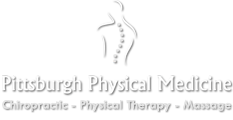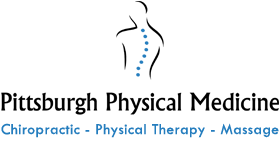Pinched Nerve in Pittsburgh PA

A pinched nerve, also known as nerve compression or radiculopathy, occurs when excessive pressure is applied to a nerve by surrounding tissues such as muscles, bones, or tendons. This compression can result in pain, numbness, tingling, or weakness along the pathway of the affected nerve. If you are experiencing symptoms of a pinched nerve, seeking the expertise of Pittsburgh Physical Medicine can be instrumental in finding relief from a pinched nerve in Pittsburgh PA and promoting healing.
Pittsburgh Physical Medicine can properly diagnose and relieve your pinched nerve in Pittsburgh PA!
What Causes a Pinched Nerve? Pinched nerves can occur in various parts of the body, but they are most commonly found in the spine, particularly the neck (cervical spine) and lower back (lumbar spine). Contributing factors to nerve compression include:
- Herniated Discs: When the soft inner material of a spinal disc protrudes and puts pressure on nearby nerves, it can lead to a pinched nerve.
- Bone Spurs: Over time, the wear and tear on the bones can result in the development of small bony growths called bone spurs. These spurs can encroach upon the space where nerves pass through, causing compression.
- Spinal Stenosis: This condition involves the narrowing of the spinal canal, which puts pressure on the spinal cord or nerve roots.
- Muscle Imbalances or Spasms: Tight or imbalanced muscles can apply excessive pressure on nerves, leading to compression.
How Pittsburgh Physical Medicine Can Help: Pittsburgh Physical Medicine offers a comprehensive approach to pinched nerves, combining chiropractic care with other modalities to alleviate symptoms and promote healing. Here's how their services can benefit individuals with a pinched nerve:
Accurate Diagnosis: The experienced healthcare professionals at Pittsburgh Physical Medicine conduct a thorough evaluation, including a detailed medical history and physical examination, to accurately diagnose the source of the nerve compression. This step is crucial in designing an individualized care plan.
Spinal Adjustments: Chiropractors specialize in spinal adjustments, which involve precise and gentle manual manipulations to realign the spine. By restoring proper alignment, chiropractic adjustments relieve pressure on the affected nerve and promote optimal nerve function.
Physical Therapy: In addition to chiropractic adjustments, Pittsburgh Physical Medicine may incorporate physical therapy techniques into the care plan for pinched nerves. Physical therapists use various exercises, stretches, and modalities to reduce inflammation, improve flexibility, strengthen muscles, and alleviate pain associated with nerve compression.
Posture Correction and Ergonomic Guidance: Improper posture and ergonomics can contribute to nerve compression. Pittsburgh Physical Medicine offers guidance on proper posture and ergonomics, both at work and during daily activities. By making appropriate adjustments to posture and workspace, individuals can minimize the risk of recurring pinched nerves.
Massage and Soft Tissue Therapy: Massage and soft tissue therapy techniques, such as myofascial release and trigger point therapy, are employed to address muscle imbalances, release tension, and reduce pressure on compressed nerves. These therapies can enhance circulation, alleviate pain, and support the overall healing process.
Pain Management: Pittsburgh Physical Medicine provides effective pain management strategies to relieve discomfort associated with pinched nerves. This may include the use of non-invasive modalities such as heat or cold therapy, electrical stimulation, or ultrasound, tailored to each patient's specific needs.
Lifestyle Recommendations: To prevent future occurrences and support long-term healing, Pittsburgh Physical Medicine offers lifestyle recommendations. These may include guidance on exercise, nutrition, stress management, and self-care practices that can aid in reducing inflammation and promoting nerve health.
Conclusion: If you are suffering from the pain, numbness, or tingling caused by a pinched nerve, seeking help from Pittsburgh Physical Medicine is a wise choice. With their comprehensive approach, including spinal adjustments, physical therapy, soft tissue therapy, posture correction, pain management, and lifestyle recommendations, they can effectively address the underlying causes of your pinched nerve and provide you with the relief you need. Don't let a pinched nerve limit your quality of life—schedule an appointment with Pittsburgh Physical Medicine today and take the first step toward healing and recovery.
Request An Appointment Today!
OFFICE HOURS
Monday
8:00am - 6:00pm
Tuesday
2:00pm - 6:00pm
Wednesday
8:00am - 6:00pm
Thursday
8:00am - 6:00pm
Friday
8:00am - 12:00pm
Saturday & Sunday
Closed
Pittsburgh Physical Medicine
5916 Penn Ave
Pittsburgh, PA 15206


